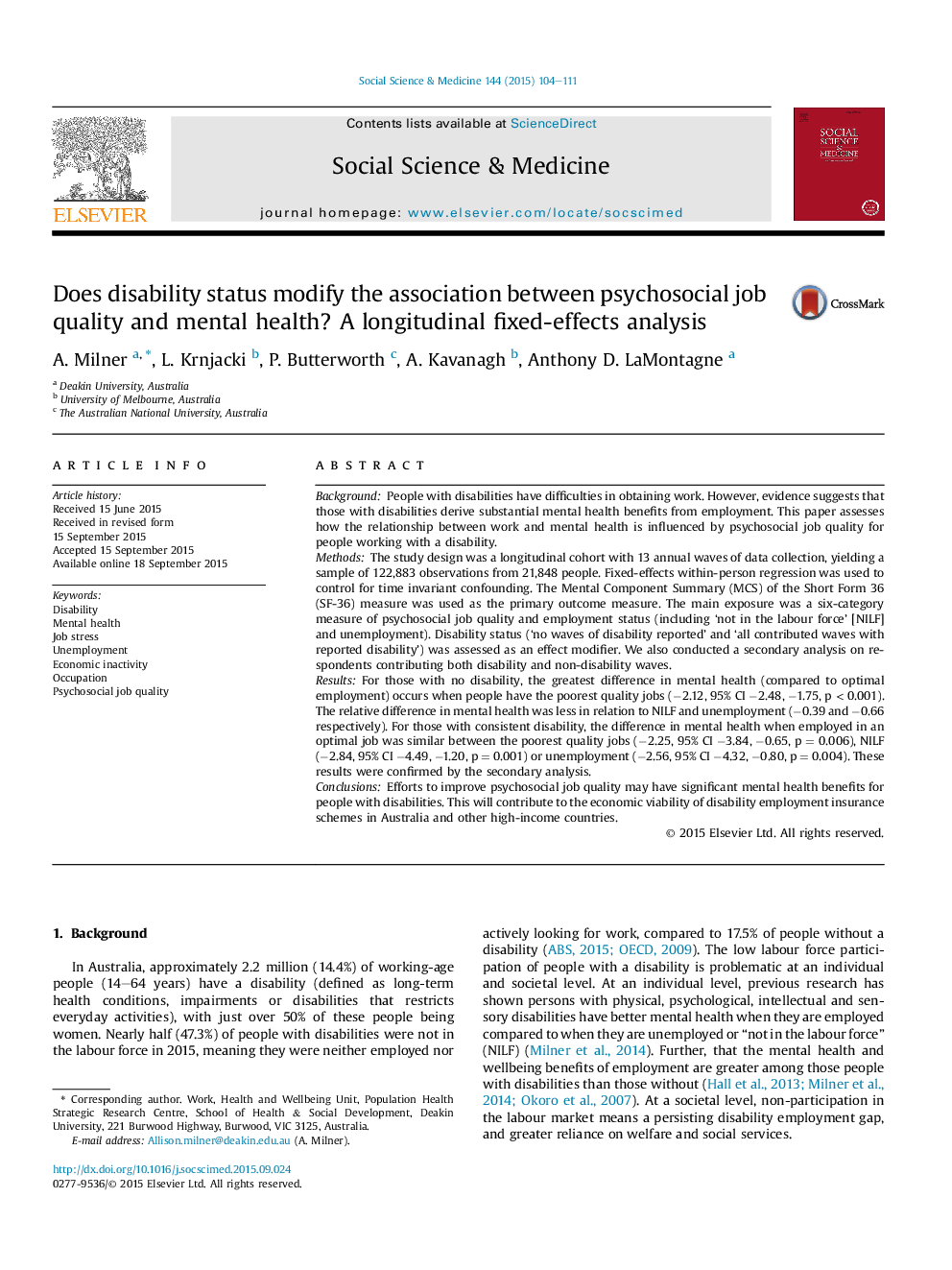| کد مقاله | کد نشریه | سال انتشار | مقاله انگلیسی | نسخه تمام متن |
|---|---|---|---|---|
| 952238 | 1476025 | 2015 | 8 صفحه PDF | دانلود رایگان |
• The relationship between psychosocial job quality and mental health differs for those people with versus without a disability.
• People with a disability experience declines in mental health when they leave work and when working in a poor quality job.
• Among those without a disability, a poor quality job was associated with the biggest reduction in mental health compared to when a person was optimally employed.
• Efforts to improve psychosocial job quality will have significant mental health benefits for people with disabilities.
BackgroundPeople with disabilities have difficulties in obtaining work. However, evidence suggests that those with disabilities derive substantial mental health benefits from employment. This paper assesses how the relationship between work and mental health is influenced by psychosocial job quality for people working with a disability.MethodsThe study design was a longitudinal cohort with 13 annual waves of data collection, yielding a sample of 122,883 observations from 21,848 people. Fixed-effects within-person regression was used to control for time invariant confounding. The Mental Component Summary (MCS) of the Short Form 36 (SF-36) measure was used as the primary outcome measure. The main exposure was a six-category measure of psychosocial job quality and employment status (including ‘not in the labour force’ [NILF] and unemployment). Disability status (‘no waves of disability reported’ and ‘all contributed waves with reported disability’) was assessed as an effect modifier. We also conducted a secondary analysis on respondents contributing both disability and non-disability waves.ResultsFor those with no disability, the greatest difference in mental health (compared to optimal employment) occurs when people have the poorest quality jobs (−2.12, 95% CI −2.48, −1.75, p < 0.001). The relative difference in mental health was less in relation to NILF and unemployment (−0.39 and −0.66 respectively). For those with consistent disability, the difference in mental health when employed in an optimal job was similar between the poorest quality jobs (−2.25, 95% CI −3.84, −0.65, p = 0.006), NILF (−2.84, 95% CI −4.49, −1.20, p = 0.001) or unemployment (−2.56, 95% CI −4.32, −0.80, p = 0.004). These results were confirmed by the secondary analysis.ConclusionsEfforts to improve psychosocial job quality may have significant mental health benefits for people with disabilities. This will contribute to the economic viability of disability employment insurance schemes in Australia and other high-income countries.
Journal: Social Science & Medicine - Volume 144, November 2015, Pages 104–111
